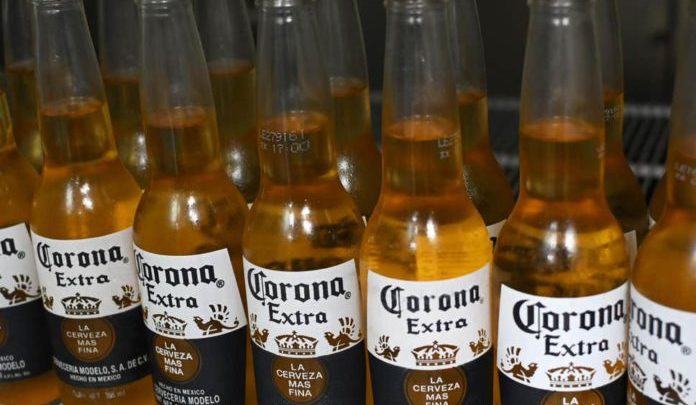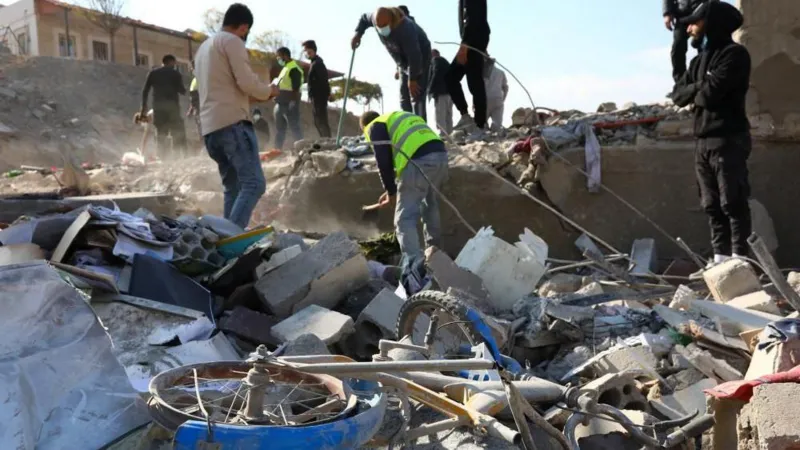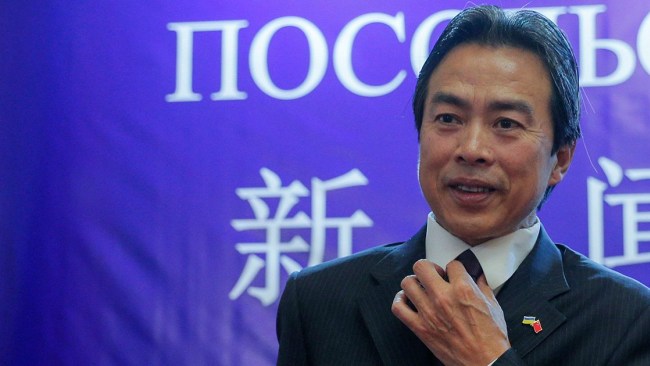In Haiti, a phone message can bring relief or agony
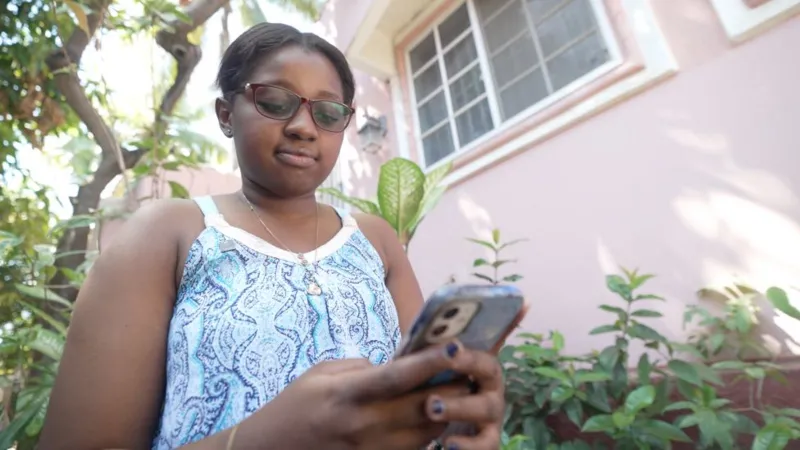
For the last month, Nun Neethoudjif Méléance has got used to a painful routine. She checks her phone daily to see if her family is still alive.
The 22-year-old teacher lives in Cap-Haitien with her brother.
But 10 members of her family including her father and other siblings are still in Port-au-Prince, where gangs are in control of about 80% of the capital.
“They are living in a kind of open prison because they cannot go too far for safety reasons. They own a shop where they sell food but it’s difficult for them to buy products to sell.”
The United Nations has described the situation in Haiti in cataclysmic terms, as a nation “close to collapse”.
The impoverished Caribbean nation is facing a power vacuum filled by violent armed gangs, with illegal weapons continuing to pour into the country, driving it to the brink of disaster.
Nun opens her messaging app.
Her father has left a voice note saying there was a shooting near them this morning. They are OK but he feels broken.
More than 30,000 people have fled Port-au-Prince, many braving long dangerous bus journeys along gang-controlled roads to make it here. She wishes her family would do that too but she says change is hard for them – they are very reluctant to leave their home and business.
“I feel like I’m powerless because they are my parents,” she says, exasperated. “I cannot tell them what to do.”
Nun’s young life in many ways reflects the overlapping crises of her country.
Her mother was killed in the 2010 earthquake which claimed more than 100,000 lives. Her cousin was killed by a gang last year, with many family members unable to attend the funeral because of the escalating violence on the streets.
She said her father did not want her to be a victim, and encouraged her to leave Port-au-Prince to pursue her ambitions.
“My neighbour in Port-au-Prince had six or seven sons, and two of them ended up in gangs. The father was a church person, a Christian. The boys used to go to church and would sing. They had bright futures, but that didn’t stop them from falling into it.”
This is a brutal reality for many children.
A new UN report says more than 1,500 people have been killed by gang violence in the first three months of this year. The gangs recruit and abuse young boys and girls, the report says, sometimes killing those who try to escape.
“People ask why am I in Haiti?” says Nun. “Well, you either stay and you fight, or you go and have some peace.”
Many are choosing the latter. Cap-Haitien’s airport reopened earlier this week where dozens of people queued at the small departures entrance. Clutching key documents, they were ready to exit as quickly as possible.
Baptiste Moudeché, 23, was heading to Florida for the first time with his younger sister. He made the journey from Les Gonaïves, Haiti’s fourth largest city, which has been marred by gang violence for decades. His parents remain there for the moment.
“I’m leaving because of insecurity issues and troubles. We’ve been living in a very frustrating and stressful period of time with my family.”
He doesn’t know when he’ll return.
“My dream is for Haiti to finally have a normal government that is really thinking about the wellbeing of the nation,” said Baptiste. “A place where human rights are fully respected and where any young person can progress.”
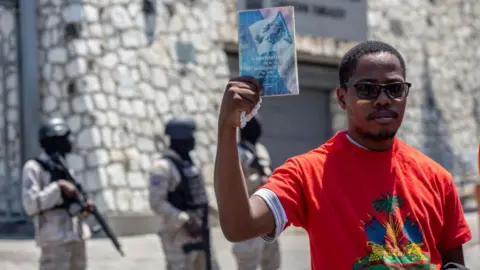 EPA
EPAThe country is now waiting to see exactly who will take on the gangs in the fight for power. Prime Minister Ariel Henry, deeply reviled and unelected, promised to step down once a Presidential Transitional Council was formally established.
Its full line up has yet to be revealed, but last week, in its first statement, it pledged to restore order and democracy to a nation that’s at a crucial turning point in history.
But also crucial is winning the trust of Haitians to achieve that. Many are profoundly sceptical of a solution proposed by the international community.
Even though the council looks to be made up of Haitian leaders, it’s been created by Caricom, an intergovernmental organisation consisting of 20 nations located in the Caribbean. Many Haitians view it as “foreign interference”.
The gangs who are currently Haiti’s de facto rulers have also dismissed the council.
One of the country’s most powerful gang leaders Jimmy ‘Barbecue’ Chérizier said he would consider a ceasefire: “If the international community comes with a detailed plan, we can sit together and talk, but they do not impose on us what we should decide.”
It will be hard though to convince many Haitians to accept violent gangsters as future political leaders.
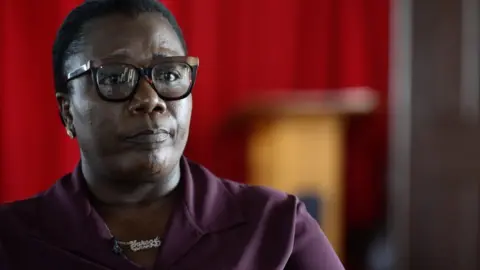
Yvrose Pierre, the first elected female mayor of Cap-Haitien, said: “When gangs attack they are terrorising people and they don’t have any compassion, they just kill. And we can’t let that happen, If it’s going to be someone who’s going to be killed it’s going to be them, not us.”
About five million people in Haiti – including one in two children – are on the verge of famine, according to the charity Save the Children. Ms Pierre feels the country is in its death throes.
“The population is dying because it’s the country which is dying. When the port is dysfunctional, the main airport is dysfunctional, the hospital is dysfunctional – people will definitely die.
“My dream for my country is to see Haitians pulling themselves together to first resolve this specific crisis. My dream is to see the Haiti I was used to as a kid.”
Many Haitians feel similar pride. This Easter weekend amid the backdrop of violence, the country marked its first major holiday in relative peace.
While Port-au-Prince avoided any processions, thousands of worshippers in Cap-Haitien walked the narrow and dusty streets in smart white dresses and buttoned shirts singing hymns. Some had their arms outstretched towards the sky in an act of praise to God.
A group of women gathered outside a Catholic high school to watch a re-enactment of the crucifixion and resurrection of Jesus. One woman told us this Easter was bittersweet: “I don’t feel good when I see Haiti is perishing. Especially when I see my brothers and sisters dying from bullets in Port-au-Prince.”
Another said: “I do think only a miracle can now help us.”
Source: bbc.com

